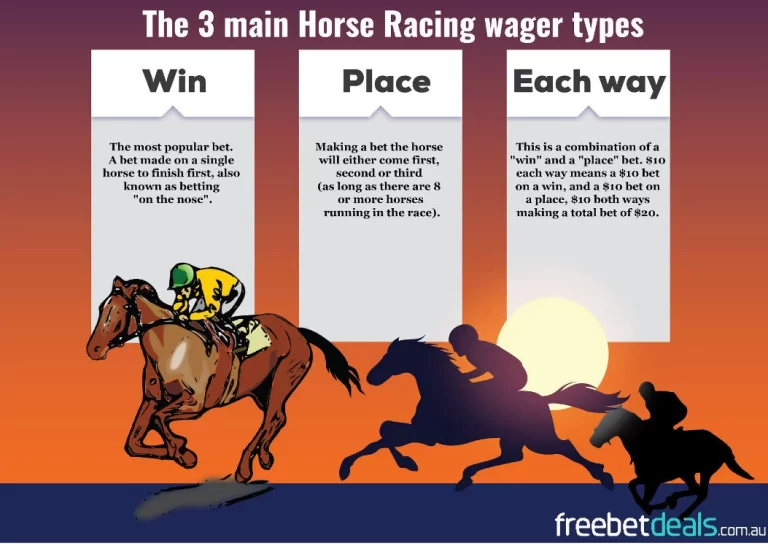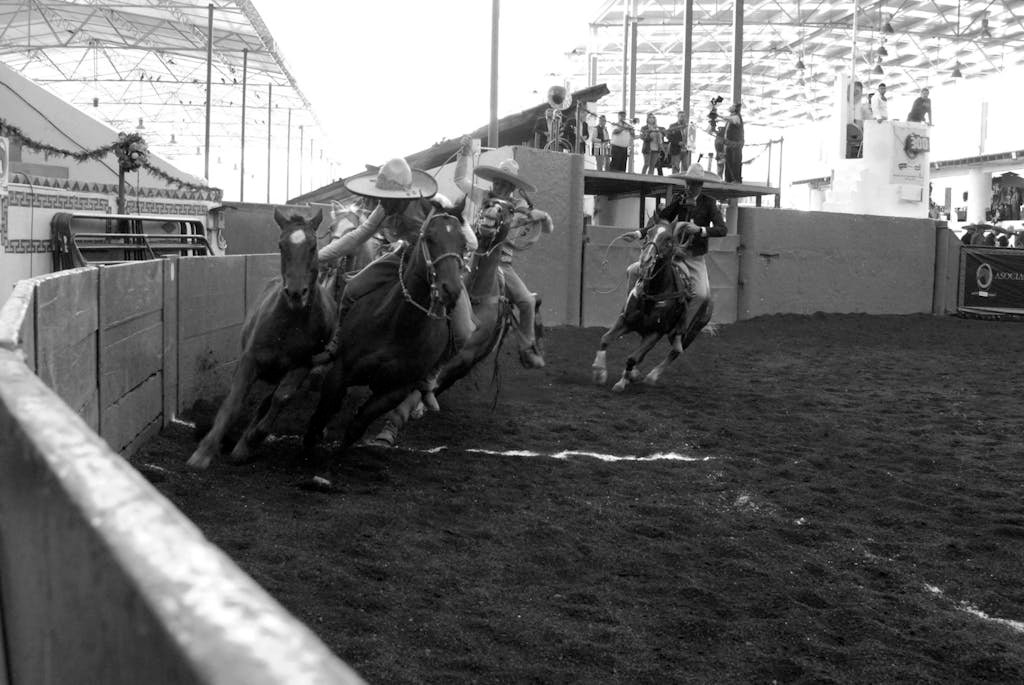Computer Based Horse Race Handicapping & Wagering

Horse race handicapping and wagering determine horse race winners by comparing two or more horses’ past performances. With horse racing, to determine a horse’s winning odds at a horse racing track, you will need to know how fast the horse runs and how other horses in their class runs. The computer can be used as horse racing handicapping software to find horse race winners.
Computerized horse race handicapping and wagering races are analyzed by experienced horse racing handicappers using horse racing software. They will help you develop an effective horse race betting system. The horse race computer can do almost anything that a human horse racing analyst can do, like determining speed, pace, class horse race performance, horse racing track bias, and horse racing class.
A horse handicapper can determine the horse who will win the horse race based on past performances of the horses in the same horse race or upcoming horse races. Using computerized horse racing software to determine which horses are likely to win a horse race with a horse with similar horse racing statistics, horse race computer software like Virtual Horse Racing Simulator will predict the horse who will most likely win the horse race.
The horse racing handicapper can also determine which horse has a higher chance of winning by comparing sprint horse races to long-distance horse races and route races. The expert horse handicapper with experience in using computer horse race handicapping and wagering software may consider horse racing class, racing pace, racing speed, and horse racing stamina.
A good horse race handicapper knows how to use all this information to his advantage to win at horse race betting. The computer can determine the performance of horses according to their types, such as sprint horse races, route horse races, and distance horse races.
Computer horse race handicap software like Virtual Horse Racing Simulator determines which horse has the highest chance of winning by analyzing horse racing data. The computerized software can also make horse race predictions based on horses’ past performances for you to decide whether or not a horse racing bet is a good horse racehorse wager.
Best horse race handicapping in thoroughbred horse races can be accomplished by researching and analyzing horse racing statistics, past performance records, and horse racing records. Virtual Horse Racing Simulator’s horse race handicapping software provides the most accurate and up-to-date results for you to horse race handicap and horse racing wager with confidence.
Features Computer Horse Race Handicapping and Wagering
- There are three features of computer-based horse handicapping and wagering prominent. First is learning from data; secondly, the authenticity and testability of the computer system; third is consistency. These features are described by the W. Benter in his report named as (Computer Based Horse Race Handicapping and Wagering Systems).
- Software Virtual Horse Racing Simulator has computer horse race handicapping and wagering software that contains at least three different computerized horse racing programs which you can use to develop various computer-based horse racing systems. The computer horse race handicapping and wagering software is programmed to provide suggested win odds in real-time.
- The Virtual Horse Racing Simulator computer horse race handicapping and wagering software can computer horse race handicap by types of horses like sprint races, route races, and distance races.
- The computer horse race handicapping and wagering software computer determination of computerized horse racing results is based on thorough research and analysis of past performance records for each specific type of horse included in the computer horse race handicapping and wagering computer system.
- The computer horse race handicapping computer software Virtual Horse Racing Simulator is designed in such a way so that anyone can use it who even has little or no knowledge of computer-based horse racing systems.
Handicapping Model Development:
The most Taxing and Wilcut action in developing a computer-based wagering system is creating the basic handicapping design—the version whose final output is a quote of each steed’s chance of winning. The kind of version used by the author is the multinomial logit design recommended by Bolton and Chapman (1986). This version is well suited to horse racing and has the valuable residential or commercial property that its result is a set of chance quotes which sum to 1 within each race.
The general objective is to approximate each equine’s present performance potential. “Existing efficiency prospective” is a single total summary index of a horse’s anticipated efficiency in a particular race. To build a model to estimate present efficiency potential, one should examine the offered data to discover those variables or factors that anticipate relevance. The productivity of the resulting wagering system will be established mainly by the predictive power of the elements selected. The probabilities set by the public betting yield an advanced price quote of the horses’ win likelihoods. For an essential analytical model to contend appropriately, it should equal the general public in class and comprehensiveness. Numerous sorts of variables can be classified into teams:
Existing problem:
– Efficiency in recent races
– time considering that the last race
– Recent exercise information
– Age of steed
Previous efficiency:
– finishing setting in previous races
– Sizes behind champion in past races
– normalized times of past races
Adjustments to past efficiency:
– Toughness of competitors in previous races
– Weight lugged in past races
– Jockey’s payment to previous performances
– Payment for misfortune in past races
– Settlement for advantageous or adverse message position in previous races
Present race situational aspects:
– Weight to be brought
– Today’s jockey’s ability
– Advantages or disadvantages of the designated post position
Preferences that can influence the horse’s performance in race:
– distance choice
– Surface preference (turf vs. dirt).
– A condition of surface area choice (wet vs. dry).
– Specific track choice.
Is computer handicapping inefficient in pari-mutuel racetrack wagering?
In modern times, a typical inefficiency in pari-mutuel racetrack wagering in the United States is due to inefficiencies in computer handicapping. Handicapping a horse race in a manner that pari-mutuel bettors in the United States understand entails three standard practices: identifying horses to bet on, identifying which horse, in particular, to bet on in a race, and identifying in what exact order in the race the horses should be bet on. Computer handicapping is a practical, modern approach to achieving such inefficiencies in pari-mutuel racetrack wagering that benefits bettors in various ways, including predicting winners; but computer handicapping inefficiencies in modern times in the United States are exhibited in three ways which include not necessarily identifying in what exact order in the race bet on horses at various betting odds, not necessarily identifying in what order horses to bet on should finish the race, and not necessarily identifying in what order horses to bet on should be placed in a custom combination wager in a race.
As computer handicapping inefficiencies in modern times in the United States in pari-mutuel racetrack wagering include not necessarily identifying in what exact order in the race bet on horses at various betting odds, and not necessarily placing in what order horses to bet on should finish the race, examples of inefficiencies in modern times in pari-mutuel racetrack wagering in the United States in racing horses with highly high betting odds in races include bettors who play all or any of these horses in exact order at various betting odds in same combination bets not necessarily winning. For example, in a five-horse race where horses are in betting odds in the following order: one horse in 30-1, another in 15-1, another in 12-1, another in 3-1, and finally in 2-5; a pari-mutuel bettor who plays all of these horses in exact combination bets in that same order would be very unlikely to win.
How effective is a logit-based handicapping system?
This is a question that researchers and students have asked for years. While there is no definite answer, a computer-based logit-based handicapping system provides an advantage to horseplayers when used correctly.
A computer-based logit-based handicapping system works best for small fields and options horse races. The logit model was initially used to predict the outcome of human elections, and it is an accurate predictor in races with a small number of runners. Horses may compete in many races over time, so some do not have enough data to develop logit-based handicapping systems.
One logit equation developed by D.B. Stambaugh can be used to create a logit-based handicapping system for any number of runners in the field. Still, this equation was created before computer programs could perform numerical computations easily and quickly. For areas with six or more horses, logit-based handicapping systems are less effective.
“Computerised logit horse racing models have been the subject of many studies over many years, including Stambaugh’s seminal work in 1978.” -Brisbin “et al.”. Brisbin et al. claim to have produced a logit model that is more accurate than Stambaugh’s logit model.
The logit horse handicapping system developed by Brisbin “et al..” produced better results in tests conducted by Brisbin et al. in 1988 and 1993. Still, no additional studies have been published to support or refute this claim.
Another logit equation was developed in the early 2000s that was easier to use on a personal computer. Many logic-based handicapping system developers are utilizing this logit equation, and it is more accurate than logit equations created before personal computers became common.
Does Bill Benter’s computer model for horse betting work?
Bill Benter’s computer model for horse betting work? Bill Benter is a Hong Kong-born mathematician and the owner of Kinetic Racing Services, Inc. Bill has degrees from MIT (Bachelor’s Degree in Mathematics), Harvard (Master’s), and Stanford (Ph.D.). Bill also won the Hong Kong Jockey Club Million Dollar Chase three times using his betting system. Bill is known for creating a computer-based handicapping model that has won him millions of dollars. Bill says he can predict the outcome of any horse race within four races with 94% accuracy. Bill is also an avid poker player and has won several tournaments, including the 1993 world series of main poker events, which had an $18,000 buy-in (Bill went on to win $250,000). Bill’s poker prowess is attributed Bill to his ability to use a computer-based horse race handicapping model. Bill also states that he uses the same logic and mathematical algorithms for horse racing when playing poker. Bill has since retired from both professions and now lives happily with his family.
Bill believes that you cannot win at gambling unless you know the outcome in advance. Bill has stated that he can predict the outcome of any horse race within four races using his computer-based handicapping model. Bill says that you must have a mathematical advantage when playing poker or any other game of chance. Bill states that math will always be there and cannot be cheated. Bill’s computer model has been examined by mathematicians and his students from MIT and Harvard, but Bill would never reveal his secret to anyone or any university. Bill does not patent or copyright the algorithm he uses to handicap horse races which means Bill’s horse race handicapping model is available for anyone to use. Bill also firmly believes you must play within your comfort zone to eliminate any possible mistakes when handicapping a horse race; Bill says you should only bet on races where the outcome is 94% certain.
How significant is the “number of past races” in handicapping predictions?
The importance of the “number of past races” is relative to how the horse performed during previous races. For example, if a particular horse has one race, it will be challenging for the handicapper to predict whether the horse will perform well or not because there is just one result to base their predictions on. However, if that same horse has many races, more data predict the horse’s future performance.
I think that number of past races is essential in handicapping because it shows how well or wrong that horse did during their time. Horse racing has an extensive history, and if you know the statistics within these races, it will help better your prediction of what you are looking at. I think that number of past races is essential in handicapping because it shows how well or wrong that horse did during their time. Horse racing has an extensive history, and if you know the statistics within these races, it will help better your prediction of what you are looking at.
I think that importance or “number of past races” is not very important in handicapping. Racehorses are always getting better with every race, so the horse will likely perform better the next time if a racehorse has one race. However, if a racehorse has multiple races, it can have some bad or good ones. Overall, I think the importance of “number of past races” is not very important in handicapping.
Racehorses are always getting better with every race, so the horse will likely perform better the next time if a racehorse has one race. However, if a racehorse has multiple races, it can have some bad or good ones. Overall, the importance of “number of past races” is not very important in handicapping.
Conclusion:
The conclusion is that computer-based handicapping allows the bettor to gain an advantage over the house.
Computer-based handicapping and wagering have become a popular alternative for professional and casual gamblers alike, and it continues to grow in popularity with each passing year.
As we can see from this conclusion of computer-based handicapping and wagering, it has become a popular alternative for gamblers to get an “unfair” advantage over the house.
If you also have an interest in football then a worthy article to read: is lionel messi autistic






